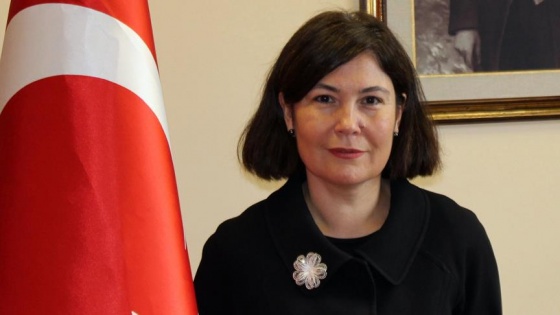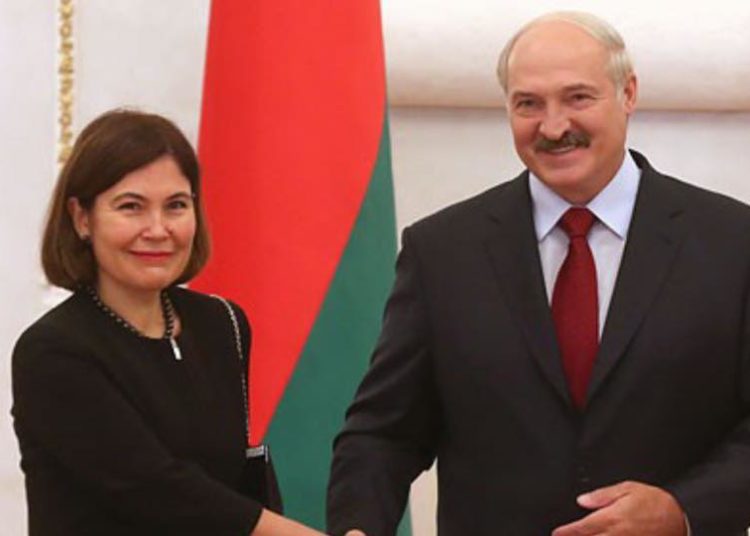Turkey’s relentless campaign to hunt down critics of President Recep Tayyip Erdoğan abroad was carried out in Belarus by Turkish diplomats, judicial documents obtained by Nordic Monitor have revealed.
The documents indicate that educators, businessmen and Turkish nationals who have been forced to live in exile in Belarus were included in a terrorism probe based on fabricated charges by a Turkish prosecutor.
According to a December 11, 2018 decision by prosecutor Birol Tufan, the Ankara Chief Public Prosecutor’s Office launched a separate investigation (file no. 2018/43629) into nine Turkish nationals in Belarus who were listed in espionage files dispatched by Turkish diplomats in the country without any concrete evidence of wrongdoing. The judicial documents confirmed that the Turkish nationals were charged with “membership in a terrorist group” by Tufan.
Judicial documents dated December 11, 2018 exposed how spying activities of Turkish diplomats in Belarus triggered criminal investigations in Turkey. (The names and addresses of the Turkish nationals have been redacted for security reasons.):

The profiling files were conveyed to the foreign ministry by Kezban Nilvana Darama, the Turkish ambassador in Minsk between 2015 and 2020.
The UN Committee Against Torture decided in June 2019 that the extradition of people who were thought to be members of the Gülen/Hizmet movement, a group critical of the Turkish government that appears to be the latest victim of the government of President Erdoğan, would constitute a violation of Article 3 of the UN Convention against Torture and Other Cruel, Inhuman or Degrading Treatment or Punishment.
According to official reports Turkey has sent 570 extradition requests to 94 countries in the last three-and-a-half years. Over 100 alleged members of the Hizmet/Gülen movement have been abducted abroad by Turkish intelligence and brought back to Turkey as part of the Turkish government’s global manhunt, according to a statement made by Turkish Foreign Minister Mevlüt Çavuşoğlu. They were reportedly subjected to torture and ill-treatment and were denied the right to a fair trial.
Last year, UN rapporteurs sent a joint letter to the Turkish government to express their concern about the “systematic practice of state-sponsored extraterritorial abductions and forcible return of Turkish nationals from multiple States to Turkey.” They asked the Turkish government to provide further information about its operations in coordination with authorities in Afghanistan, Albania, Azerbaijan, Afghanistan, Cambodia, Gabon, Kosovo, Kazakhstan, Lebanon and Pakistan for the abduction, arbitrary arrest, detention, enforced disappearance or torture of at least 100 individuals suspected of involvement with the movement.
In February 2020 Foreign Minister Mevlüt Çavuşoğlu also confirmed clandestine spying operations by Turkish diplomats on foreign soil. Çavuşoğlu said Turkish diplomats assigned to embassies and consulates have officially been instructed by the government to conduct such activities abroad. “If you look at the definition of a diplomat, it is clear. … Intelligence gathering is the duty of diplomats,” Çavuşoğlu told Turkish journalists on February 16, 2020 following the Munich Security Conference, adding, “Intelligence gathering and information collection are a fact.”
As previously disclosed by Nordic Monitor, the foreign ministry sent lists of profiled Turkish nationals in two CDs to the Ankara Chief Public Prosecutor’s Office, the national police and Turkey’s intelligence agency MIT on February 19, 2018 via an official document for further administrative or legal action, the punishment of their relatives back in Turkey and the seizure of their assets.
Then, public prosecutor Adem Akıncı, who received the foreign ministry document on February 23, 2018, forwarded the classified CDs including information on 4,386 Erdoğan critics to the Organized Crimes Unit of the Ankara Police Department for further action. The police conveyed the results of its investigations to the public prosecutor.
According to judicial documents released by the Ankara 4th High Criminal Court on January 16, 2019, the foreign ministry compiled a long list of foreign entities that were owned and/or operated by people who were seen as close to the Hizmet/Gülen movement in 92 countries in the Americas, Europe, Asia and Oceania.












